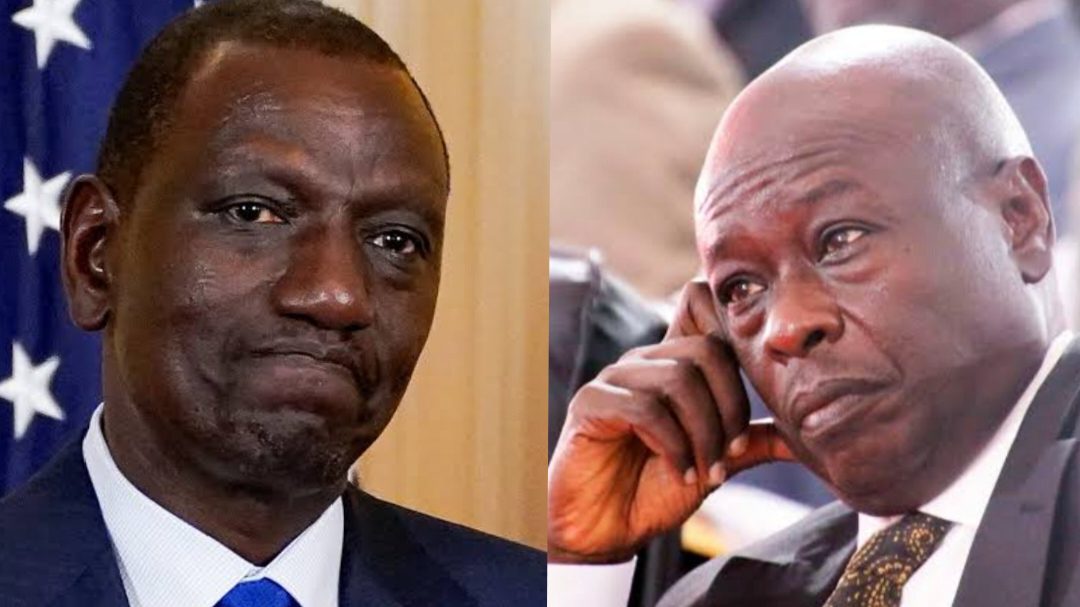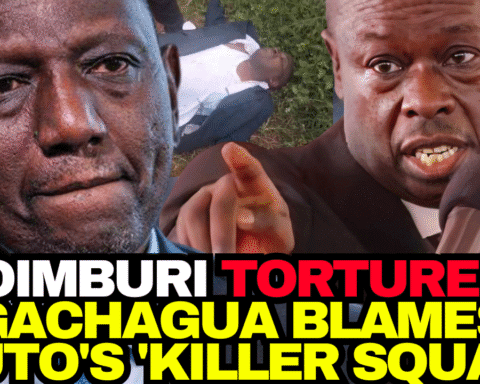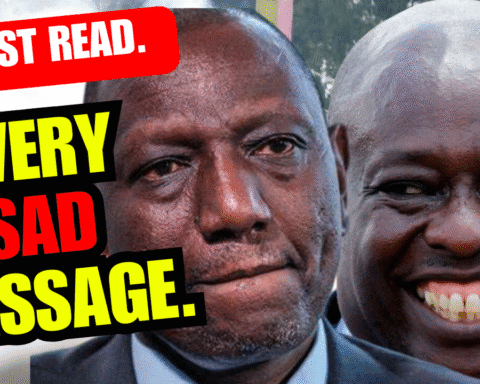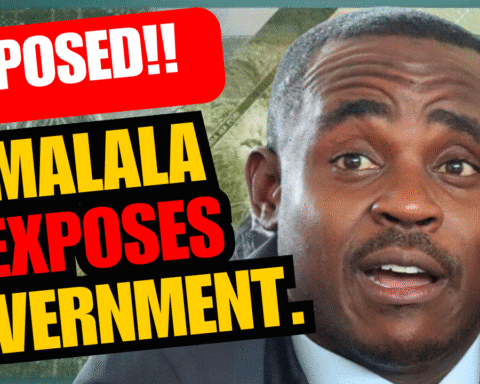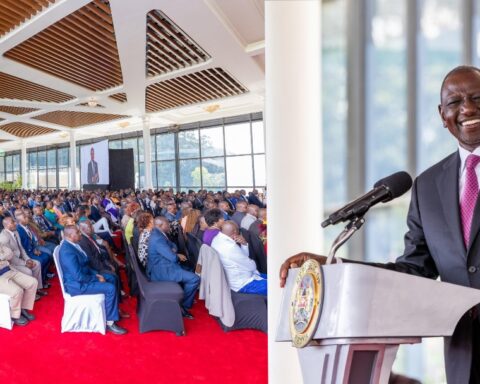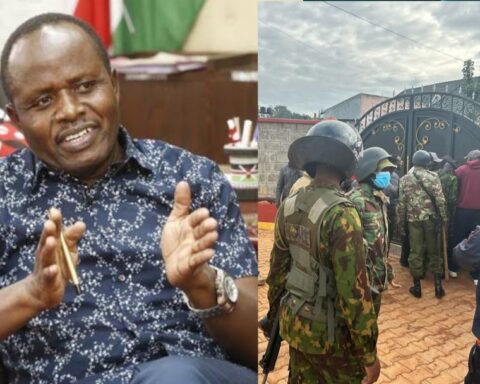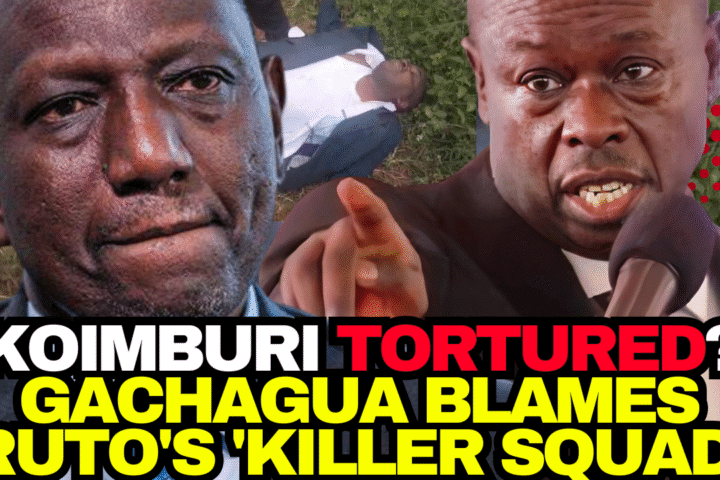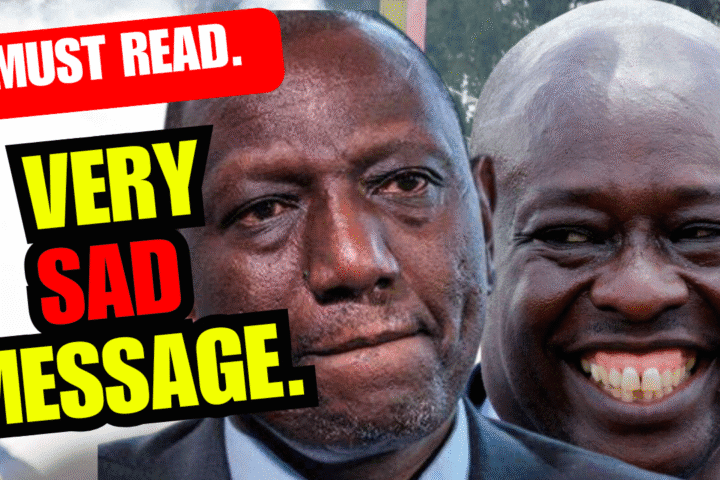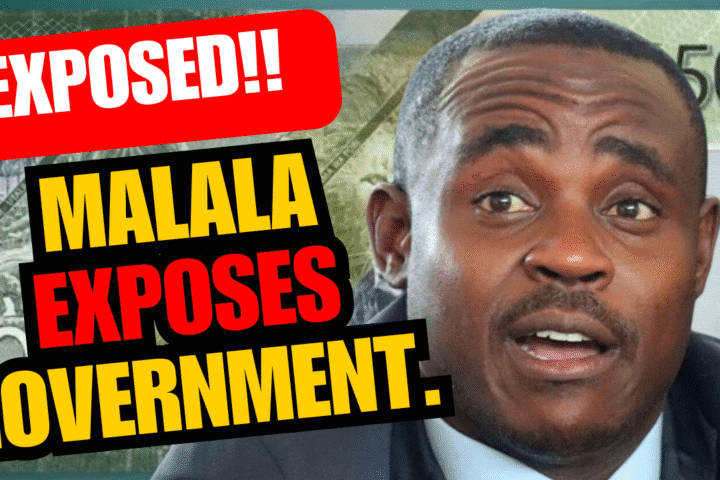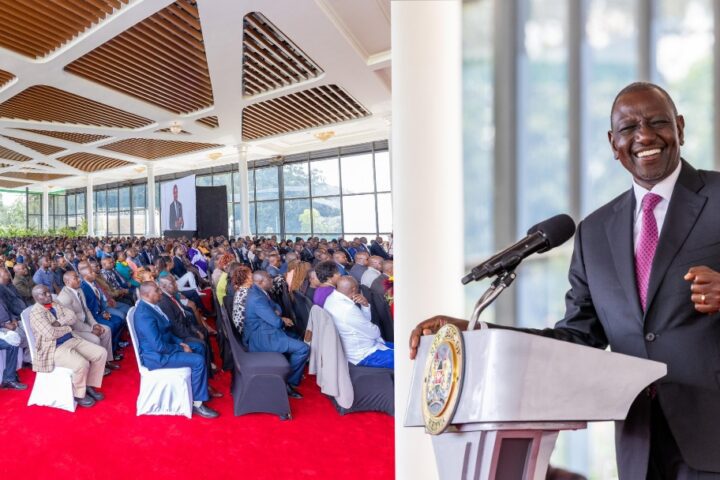Boniface Mwangi in his verified Facebook page has not shied away from the uncomfortable truths. He speaks them—loud, raw, and unfiltered—because he believes silence is complicity. In a recent reflection, Mwangi issued a chilling but necessary reminder: Kenya is once again flirting with a deadly game of political betrayal, tribal manipulation, and the haunting possibility of violence.
At the heart of his concern is a story that has never quite been told publicly but is known in political circles: Former President Uhuru Kenyatta was once asked to approve the assassination of his then-Deputy, William Ruto.
He refused.
Why? Because Uhuru understood the gravity of such an act. Killing Ruto wouldn’t just have been a political maneuver—it would have plunged the country into chaos. Retaliation wouldn’t come from politicians but from ordinary citizens, wrapped in tribal anger and grief. Innocent lives would have been lost. Kenya would have burned again, as it did in 2007.
Uhuru’s decision was not born out of friendship or trust—he and Ruto were far from allies by that point. It was a decision rooted in foresight, in the understanding that violence breeds more violence, and once unleashed, it cannot be controlled.
Today, Boniface Mwangi warns, Kenya finds itself standing at the edge of that same precipice.
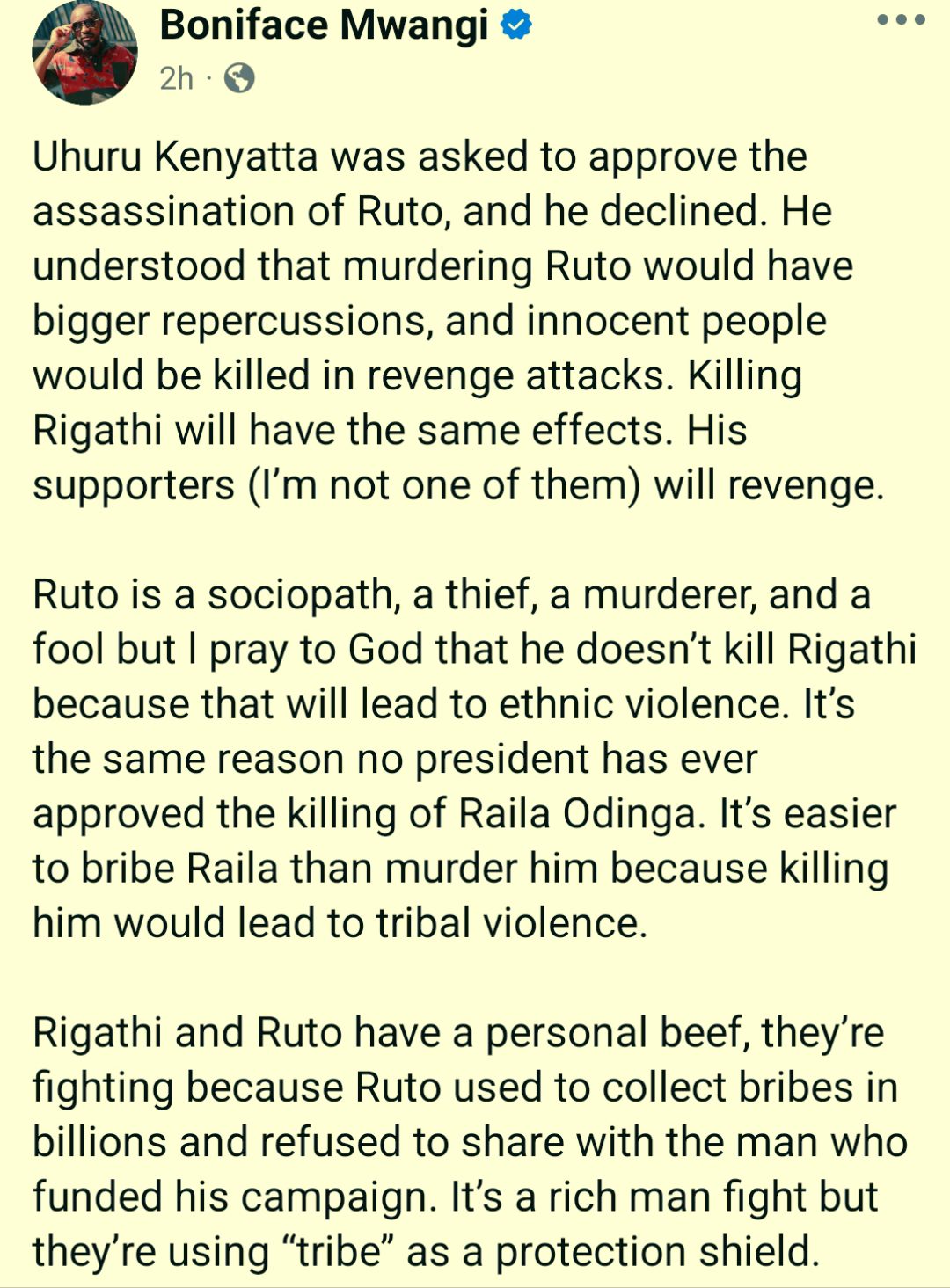
President William Ruto and his Deputy, Rigathi Gachagua, are now embroiled in an increasingly public and bitter fallout. And while many dismiss this as just another political squabble, Mwangi sees something far more sinister beneath the surface. Rumors are swirling—dark rumors—that the path of assassination may again be considered.
And Mwangi is clear: he prays to God that Ruto doesn’t choose that route.
“Ruto is a sociopath,” Boniface Mwangi declares. “A thief, a murderer, and a fool.” But even with this blistering condemnation, he pleads that Ruto not kill Rigathi. Because if he does, the result will not just be political damage—it will be ethnic war. The killing of a man like Rigathi, with his strong tribal following, will be seen not as a political hit, but as an attack on an entire community.
Mwangi is not a supporter of Rigathi—he makes that clear—but warns that assassination would ignite tribal passions that Kenya cannot afford. It would not be about two politicians anymore. It would be about Kikuyu versus Kalenjin. It would be Githurai against Eldoret. It would be innocent mothers and children paying the price for elite betrayal.
This is why, Mwangi notes, no sitting president has ever dared to assassinate Raila Odinga, despite his decades of fiery opposition. Raila has been arrested, harassed, demonized—but never killed. Because killing Raila would spark something no government could contain. It would break Kenya apart. It’s far easier, Mwangi argues, to bribe Raila than to bury him.
Now, Ruto and Rigathi are engaged in a battle that’s anything but noble. It’s not about governance. It’s not about ideas. It’s personal. Rigathi backed Ruto during the 2022 elections, pumping in resources and political capital. Ruto, meanwhile, was busy collecting bribes and building war chests. When he finally seized power, he shut the door behind him, leaving Rigathi outside in the cold.
What started as a partnership turned into betrayal. But instead of settling their issues like men—like the wealthy, elite men they are—they’ve decided to drag entire communities into the mud with them.
“It’s a rich man’s fight,” Mwangi says, “but they’re using tribe as a protection shield.”
And therein lies the danger.
Rather than own up to their greed and betrayal, Ruto and Rigathi are wrapping themselves in tribal flags. Rigathi now subtly postures as the defender of the Kikuyu people, painting Ruto’s actions as anti-Mount Kenya. Ruto, on the other hand, has started to consolidate his Kalenjin base, portraying the fallout as a betrayal of his presidency.
Mwangi sees through the facade. He reminds Kenyans that this is the oldest trick in the book. When politicians fall out, they retreat into tribal corners, weaponizing identity to mask their own failures.
But we, the citizens, must not fall for it.
We’ve been here before. In 2007, Kenya’s post-election violence was fueled not by love for leaders but by tribal narratives cooked up by elites who were, ironically, friends behind the scenes. Ordinary people killed, raped, and burned for politicians who later shook hands and shared power.
Boniface Mwangi, who documented the horror of that time as a photojournalist, knows what’s at stake. He has seen what happens when poor people kill each other for rich men’s pride. He’s seen children orphaned by tribal war, homes torched by neighbors, women mourning husbands they didn’t send to war.
And he’s not willing to watch it happen again.
So he sounds the alarm: do not be used. This is not your war. This is not your fight. Ruto and Rigathi are not battling over your rights, your hunger, your hospitals, or your children’s school fees. They are fighting over power, over control, over money.
“It’s not about tribe,” Mwangi insists. “It’s about theft, betrayal, and access to the state’s billions.”
Kenyans must resist the bait. Because if Rigathi is killed—or if he disappears under mysterious circumstances—the spiral into violence will be swift. It won’t be political operatives dying. It will be you. It will be us. The youth who are jobless. The boda boda riders. The mama mboga in Nyeri and Eldoret. The slum dwellers in Kibera and Mathare.
We will be the ones shedding blood for men who fly over our burning neighborhoods in choppers.
Boniface Mwangi’s plea is simple but urgent: don’t let them fool you again.
Do not be manipulated into fighting your neighbor. Do not be tricked into tribal vengeance. Do not offer your blood in defense of billionaires who dine together in secret and fight in public.
He calls on Ruto to resist the urge to silence dissent through murder. He calls on Rigathi to stop fanning tribal paranoia. And he calls on Kenyans to open their eyes and say: “Not in our name.”
Let the political elite fight their wars among themselves. Let them clash in boardrooms and ballot boxes, not in our streets and slums. Let them know: the era of dying for politicians is over.
Boniface Mwangi is not merely offering a warning—he’s offering a challenge. A challenge to every Kenyan to choose peace over propaganda, to choose truth over tribalism, and to choose life over the lies of the political elite.
Because the moment we say “no more,” we begin to heal.
Let them fight.
But let them know: they will not use us this time.


